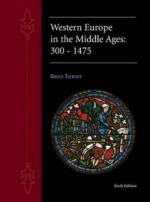|
This section contains 540 words (approx. 2 pages at 300 words per page) |

|
Definitions of Evil. Medieval theologians' responses to the problem of evil were influenced by two related but different religious and philosophical systems. A movement that can be called medieval Manichaeism offered a dualist explanation of evil, which differed considerably from that proposed by the Christian Platonism of Augustine in the fifth century and the Christian Aristotelian Platonism of Thomas Aquinas in the thirteenth. For the Manichaeans, the human body as material was evil. Human reason was a good. Thus, their philosophical and religious life consisted in a purification of the body so that the true "rational" self-purification could be achieved. Manichaeans believed that since God is perfectly good he could not have created the physical world, which is evil, and, thus, there must exist another purely evil principle in opposition to God. Plotinus, however, taught that evil was...
|
This section contains 540 words (approx. 2 pages at 300 words per page) |

|




